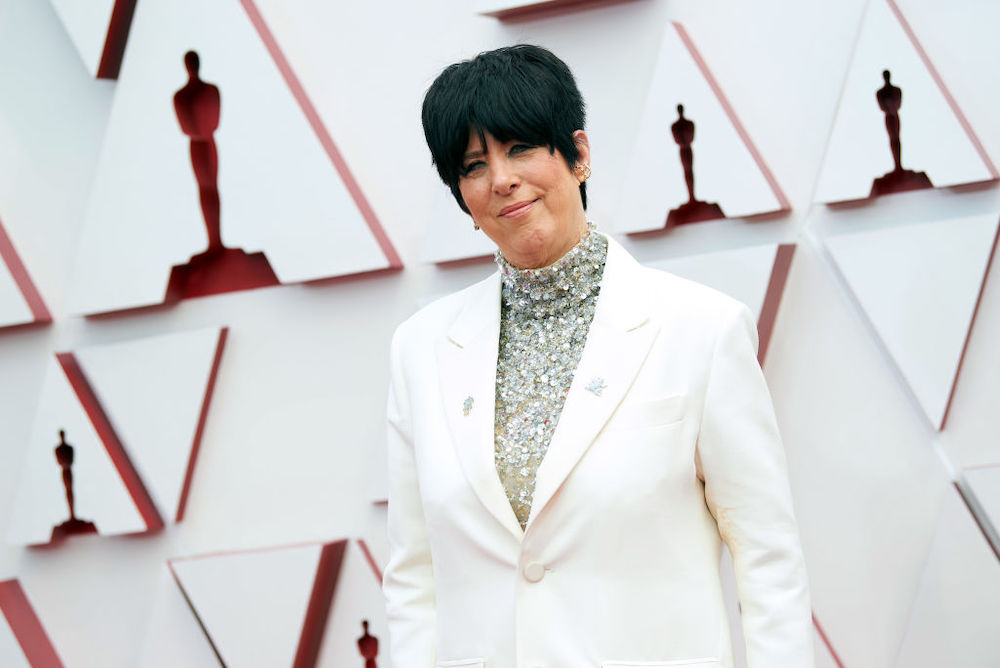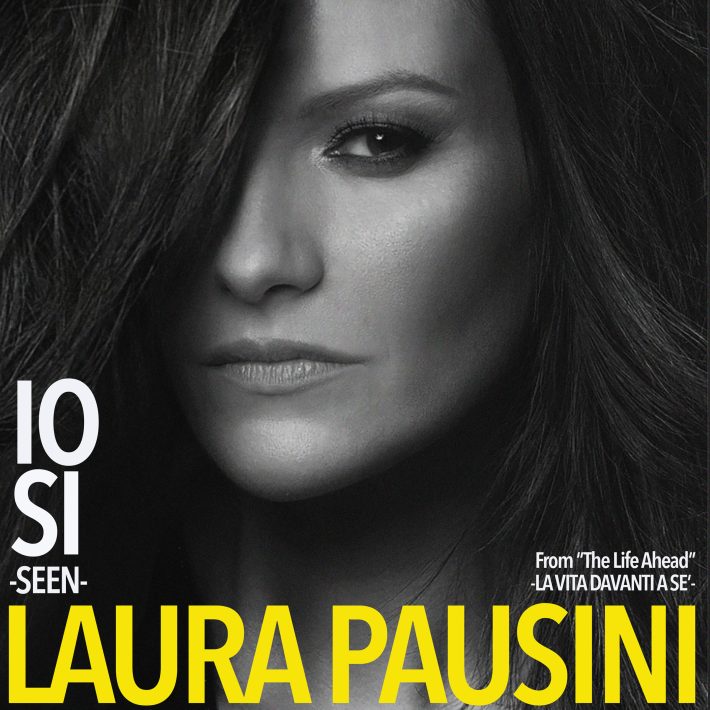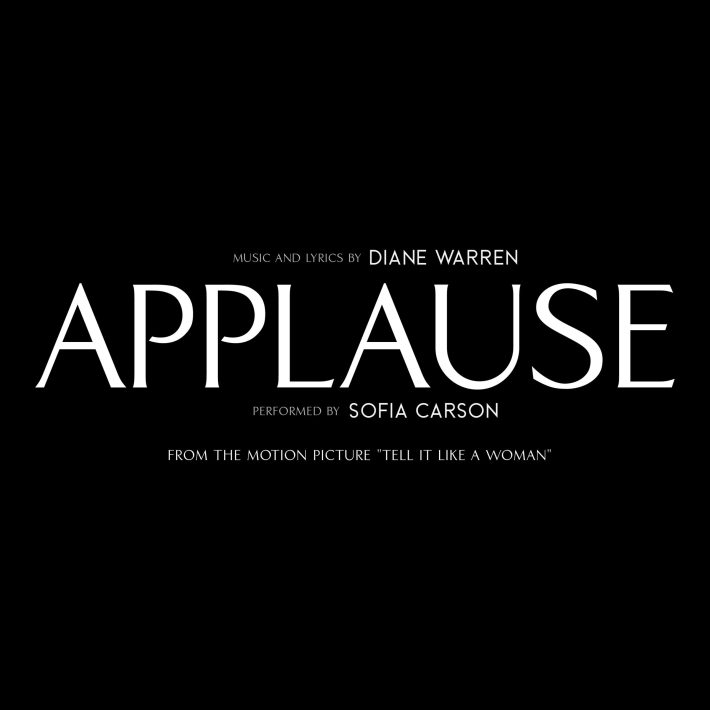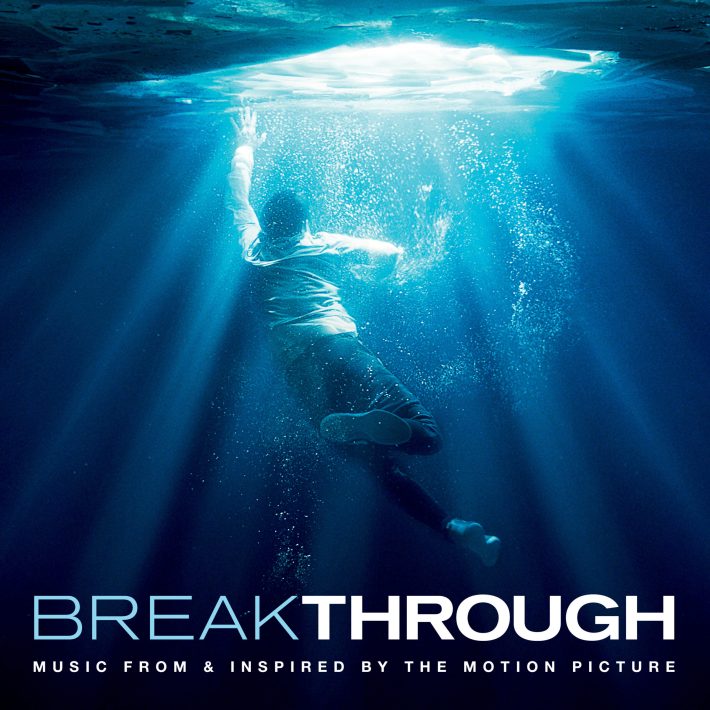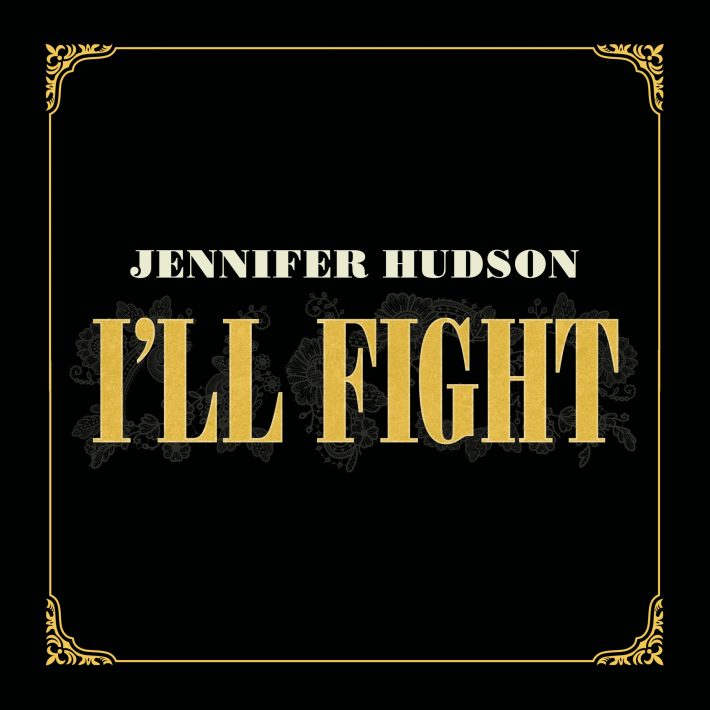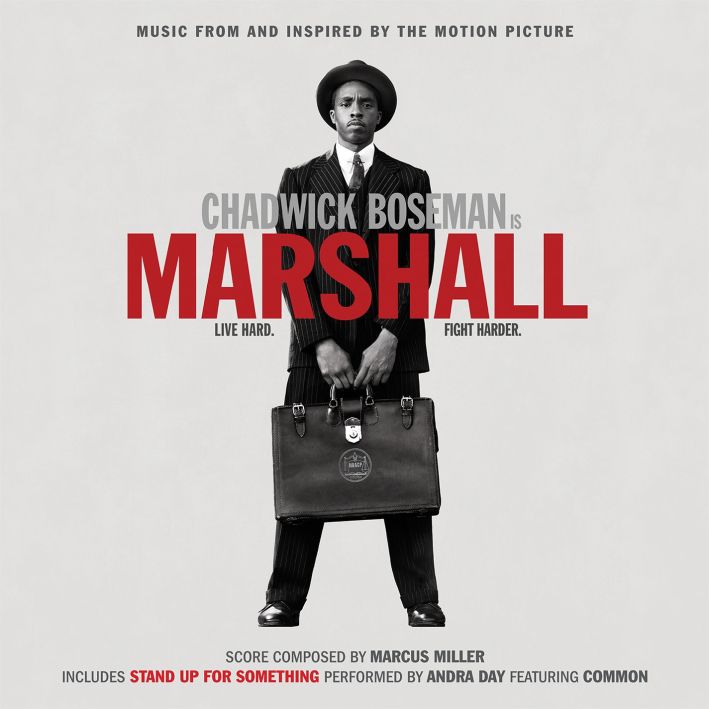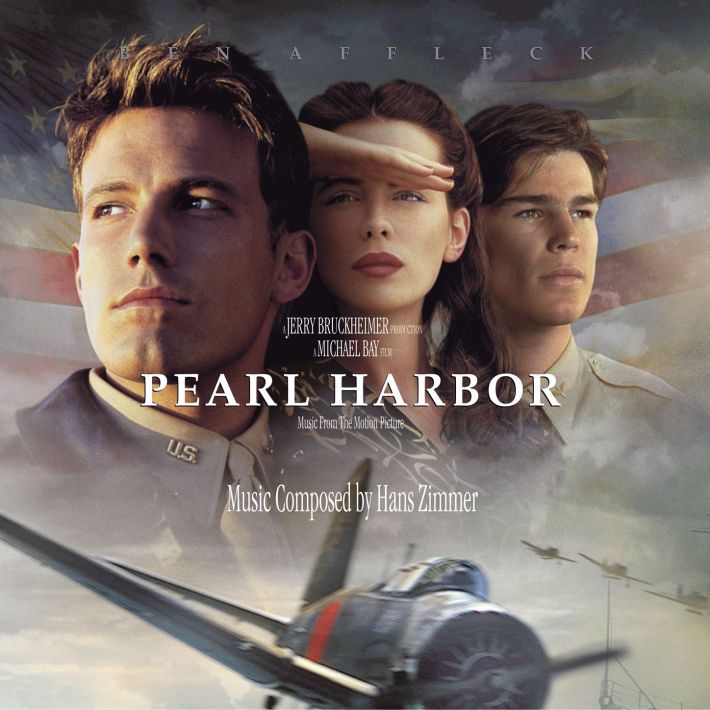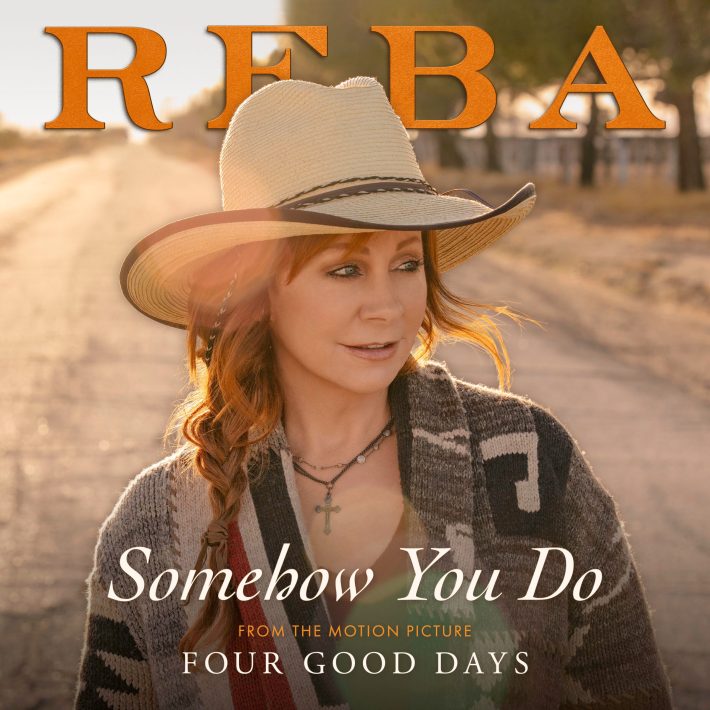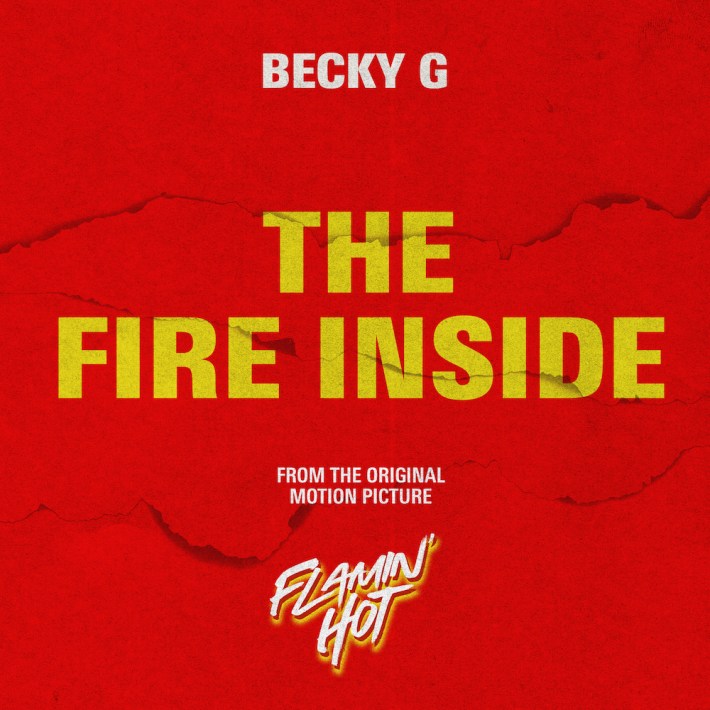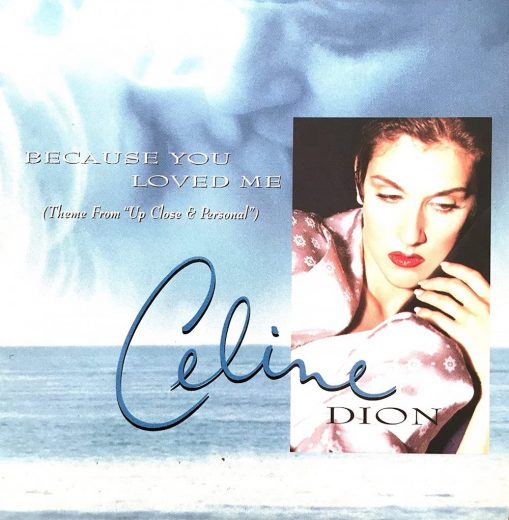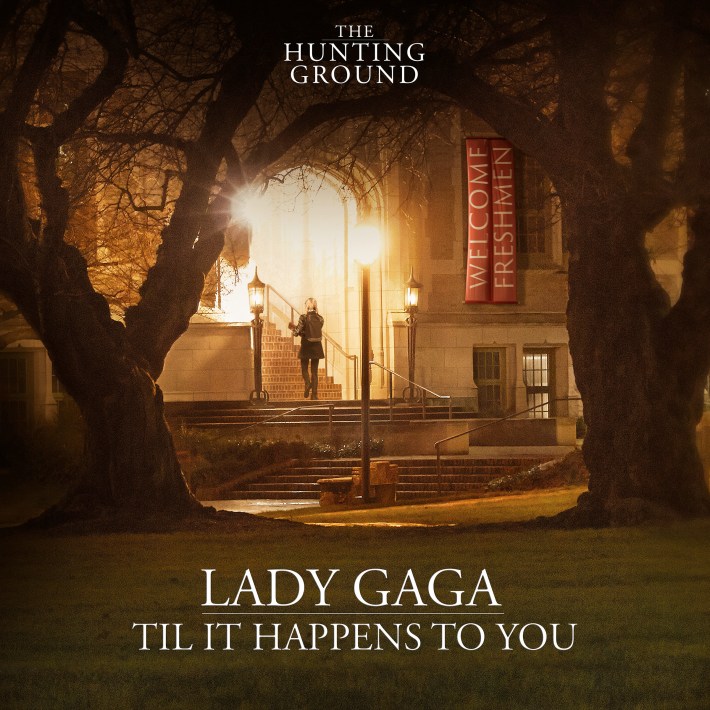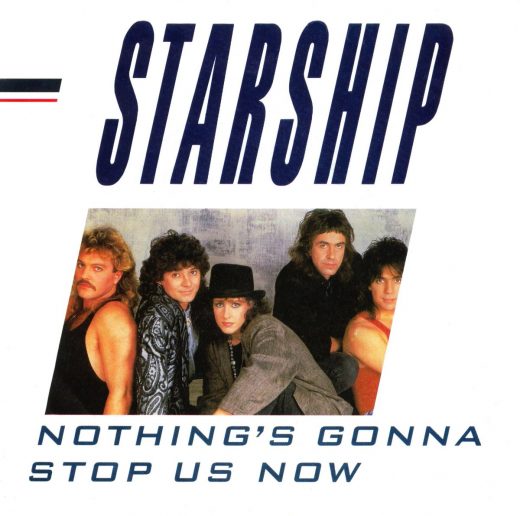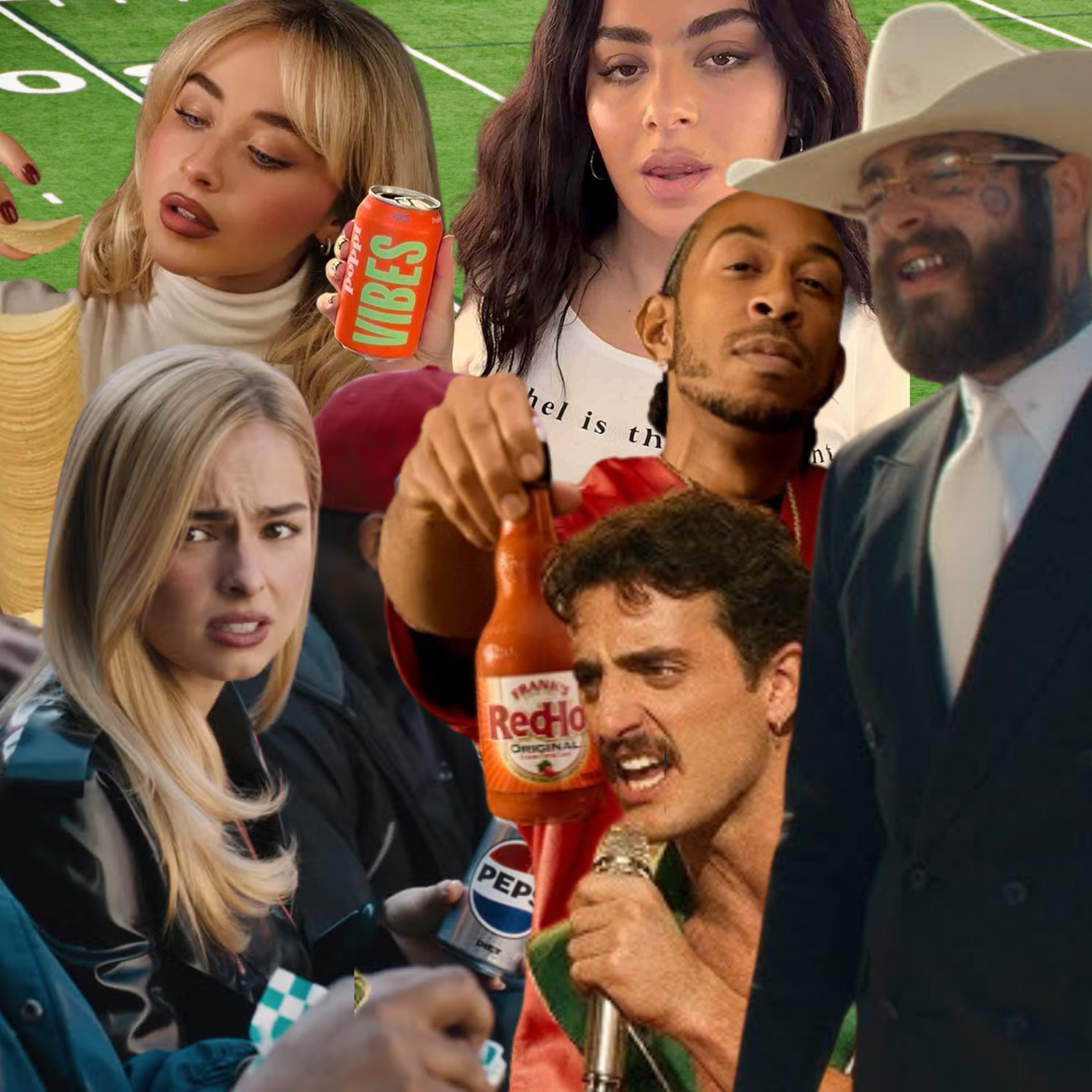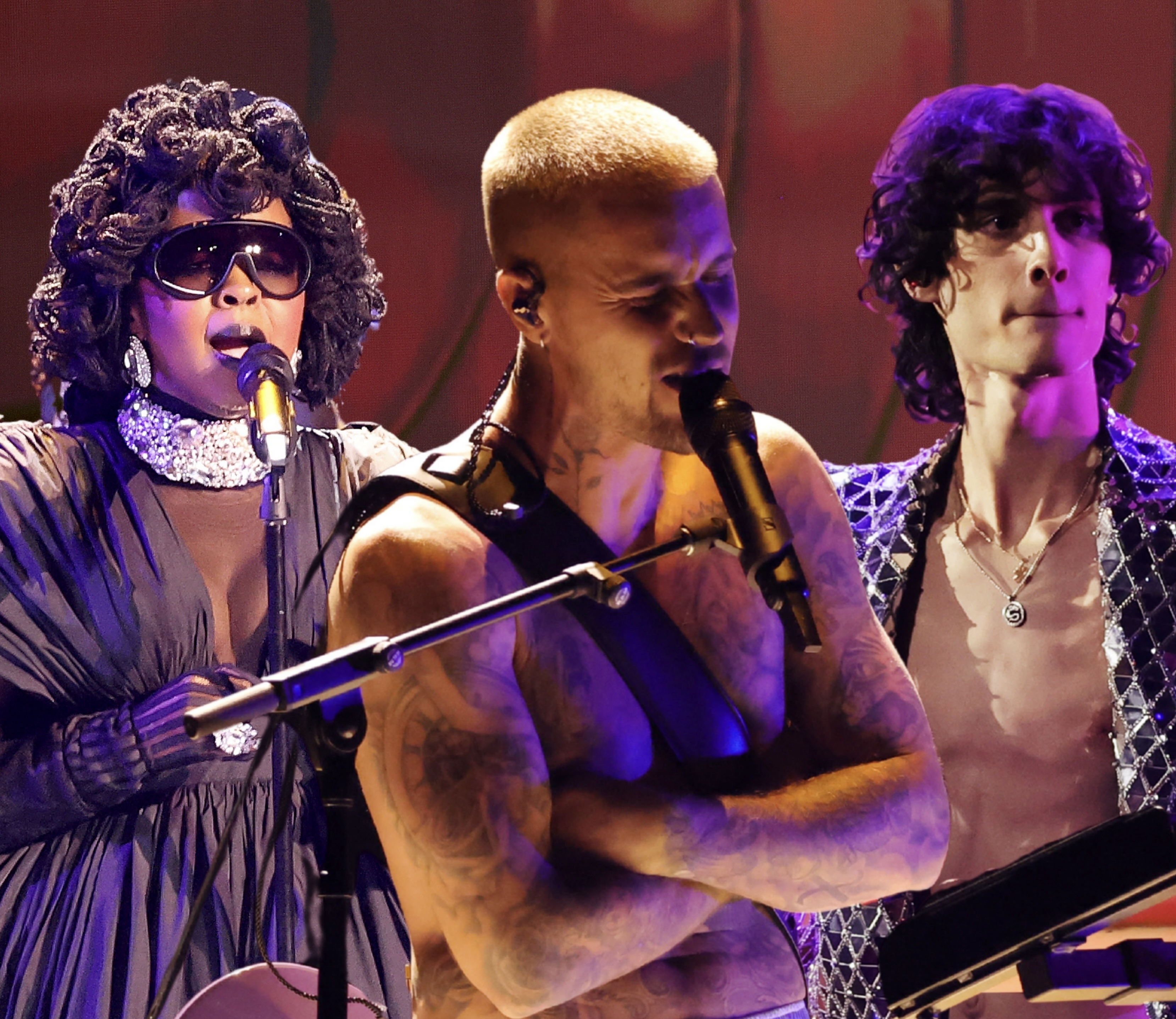It's a beautiful Hollywood tradition that's happened 14 times in the past 37 years: Diane Warren gets all dressed up, walks the red carpet, and loses the Academy Award for Best Original Song. Warren is one of the most successful songwriters in the history of American pop music. She's a Grammy winner, and nine of her songs have reached #1 on the Hot 100. But she's also one of the losingest losers in the history of the Oscars. She has been nominated for the Best Original Song award 15 different times, and she's lost it 14 times. On Sunday night, she will almost certainly lose the award for the 15th time. She'll probably lose it to someone who's already won the award.
At this point, it's not even fair to compare Warren to Susan Lucci, the lady who famously lost the Daytime Emmy every single year. It took 21 nominations, but Lucci eventually won her little statue. Warren was given an honorary Oscar in 2022, but she's never won a competitive Oscar. Instead, the losing Diane Warren end-credits ballad has essentially become a genre unto itself.
In the first half of her career, Warren racked up Oscar nominations with stormy ballads that became actual hits. They were big songs, and they often came from big movies. This is no longer the case. In the past decade, Warren has accumulated nine nominations, and all of them are for movies that you have not seen, movies that don't even feel real. It feels like these movies exist for the express intention of snagging another Oscar nomination for another gloopy Diane Warren ballad -- as if someone's running an elaborate scam, one that we won't understand for decades.
Diane Warren seems like a delightful human being, a total pro who's also at least a tiny bit of a kook. By all accounts, she has a great attitude about taking all of her Ls. She's 67 now, and she's spent most of her life as a behind-the-scenes figure. While her puffed-up orchestral ballads have largely disappeared from mainstream pop music, she can still make a commercial impact. Just last year, a song that Diane Warren co-wrote made it into the top 10. It was a newly released Taylor Swift song that was originally written a decade earlier, but still. Also, Relentless, a new documentary about Warren, is set to debut at SXSW next week. Maybe that will win an Oscar.
Now that Warren now has 15 Oscar-nominated songs, she's in round-number territory. That means it's as good a time as any to dig through her vast catalog of Oscar-nominated songs and figure out of any of them are any good. A key disclaimer before we get going here: Smoothed-out adult contempo ballads are one of my least favorite forms of music, and that's pretty much all we're getting in this list. I think most of these songs are medium-bad at best, and some of them are way worse than that. But when you approach a task like this, you have to take these songs on their own merit. You have to appreciate the things that they try to do, whether or not those attempts are successful. You have to put yourself in the brain of the imaginary Oscar voter who just keeps nominating these damn things. Here are Diane Warren's 15 Oscar-nominated songs, from worst to first.
Hey, remember The Life Ahead, the Italian drama that came out on Netflix? Sophia Loren was in it? No? Nothing? Well, this film apparently exists, and it features the worst of Diane Warren's Oscar-nominated songs. Laura Pausini, an Italian-born singer who's long been a star in the Spanish-speaking pop world, sang versions of "Seen" in both English and Italian, and Sophia Loren is in the video for the Italian version. But we're dealing with the English one here, and whoof. Diane Warren co-wrote "Seen" with Laura Pausini and Niccolò Agliardi, and the song goes for tinkly-piano empathy in the most ham-handed way imaginable. The chorus is built around Pausini singing the phrase "I want you to know that you're seen" – a piece of therapeutic internet-speak that already felt paleolithic by the time this movie came out. It's like the most cloying Facebook meme your aunt ever sent you, stretched out to four minutes. Even at the 2021 pandemic Oscars that they held in a train station, someone still had to make room for a performance of this song that slowed an already-awkward telecast down to a grinding halt. "Seen" lost to the H.E.R. song from Judas And The Black Messiah. Nobody remembers that song, either, but at least it's not "Seen."
Wikipedia tells me that Tell It Like A Woman is "an American-Italian anthology film" of seven short stories from female directors like Catherine Hardwicke and Taraji P. Hinson. Cara Delevingne, Marcia Gay Harden, and Eva Longoria are all in it. The movie went straight to VOD in February 2023, and you can watch it for free right now on Peacock or Tubi. Go ahead. I'll wait. So: Bland, non-scary prestige Creepshow? That's what I'm imagining. This type of enterprise feels like a mirage: A movie for nobody, that nobody will ever watch, existing for the express purpose of landing another Oscar nomination. Why? What's going on? It seems suspicious. As for the song itself, it's pretty much the inverse of "Applause," the single that Diane Warren collaborator Lady Gaga released in 2013. That one was a self-aware freakout about how Lady Gaga demands our applause at all times, how she can't live without it. This one, on the other hand, is bland uplift about giving yourself some applause. The singer is Sofia Carson, a young singer/actress who isn't even in Tell It Like A Woman but who is in those Disney Descendants movies. She delivers the whole track in the stereotypical whisper-coo indie girl voice, and it just drifts past without leaving any impression. Warren and Carson performed the song at the Oscars last year, but nobody remembers that because it justifiably lost to the high-energy RRR banger "Naatu Naatu."
I have legitimately never heard of the faith-based inspirational drama Breakthrough, but it apparently did decent box-office business in the places where faith-based inspirational dramas do decent box-office business. A kid outside St. Louis falls through a frozen lake and gets trapped under some ice for 15 minutes, and then he's in a coma. Lots of people pray for him, and one of those people is his mom. And hey! She's the person singing this song! Chrissy Metz played Kate on This Is Us. It's been a while since I've seen that show, but one of its recurring plotlines was all about how Kate can't get a music career going because nobody will take a chance on a singer who looks like her. With that in mind, I guess it's nice that the real Chrissy Metz got to sing a big movie ballad at the Oscars. But the song itself is boilerplate inspirational balladry, produced and delivered without anything resembling flair or personality. If I'm ever trapped under ice, or stuck at the bottom of a well, or a victim of any other random-ass twist of fate, please make sure any songs about my predicament have more flair than this one. It lost to Elton John's "(I'm Gonna) Love Me Again," from Rocketman.
The documentary RBG came out when Ruth Bader Ginsburg was still alive, when she was still being held up as a liberal hero. Then she refused to retire from the Supreme Court when she could, died under Trump, and basically doomed American abortion rights through misplaced adherence to norms or whatever. The short-lived impulse to turn Ginsburg into a bobblehead is the same one that animates this song, which is like "Fight Song" if it didn't have any actual fight in it. Time has not been kind to it. Diane Warren has said that she wanted to write "I'll Fight" in Ruth Bader Ginsburg's voice, but it comes delivered through the voice of Jennifer Hudson, a lady who had already won an Oscar for acting by this point. Hudson has a monster voice that's capable of elevating mediocre songs, and this is definitely a mediocre song. But there's some pleasure it its swelling strings and crashing drums. This one was up against Lady Gaga and Bradley Cooper's "Shallow," so it was never any threat to win the big award. It didn't actually put up a fight.
Before "Grateful," Diane Warren went 13 years without a Best Original Song nomination. After "Grateful," Diane Warren basically got that nomination every year. That means that "Grateful" opened a whole new chapter of Warren's Oscar-losing career, and it kicked off the era of her getting nominated for songs that don't exist, from movies that don't exist. But Beyond The Lights exists! It's a great movie! Gugu Mbatha-Raw plays a pop star who falls in love with the cop who saves her from a suicide attempt! An excellently slimy Machine Gun Kelly plays her ex! She might even sing "Grateful" in the movie! I forget! Rita Ora is exactly the kind of gifted-enough, barely-there pop star who practically exists to sing Diane Warren end-credits ballads, and she does just fine with a deeply forgettable piece of music. Unlike Warren's previous nominees, "Grateful" was not a hit, but it at least sounded like something that could've been a hit 15 years earlier. The strings are nice. I don't know. I'm reaching. You don't want to just read "this song sucks" 15 times in a row, do you? In any case, "Grateful" lost to Common and John Legend's "Glory," from Selma, and it should've lost to Tegan & Sara and the Lonely Island's "Everything Is Awesome," from The Lego Movie.
Hey, it's rapping, on a Diane Warren song! Kind of! "Stand Up For Something" came three years after Common and John Legend won the Oscar for "Glory," their big ballad from Selma. This one clearly wants to do the same thing. It's another soul ballad from another Oscar-bait biopic about a towering civil rights figure. (Marshall remains a prime relic of the pre-Black Panther moment when Chadwick Boseman only ever starred in biopics.) The rapping is awkward and stapled-on, but it's still there, at least for a few bars. Shockingly, Diane Warren and Common didn't fit together quite as well as John Legend and Common. Still, "Stand Up For Something" is a perfectly decent retro-soul jam, with old-timey gospel chord progressions and a stormy vocal performance from Andra Day. It's not good, but it's probably better than it has to be. Still, it was nowhere near enough to beat "Remember Me," from Coco, and I can't imagine that it could've ever summoned the level of tear-stained resonance that "Remember Me" has when the character Miguel sings it to his grandma. Coco, man. That's a great movie. I would very much like to stop listening to these Diane Warren songs and go watch Coco again instead.
It's difficult to judge the gigantic Diane Warren songs against the ones that left no cultural ripple. I don't have anything against the Andra Day song "Stand Up For Something." I heard it the one time when I was watching the Oscars, and then I never heard it again. It was not a plague upon my life. I never had to consider it. On the other hand, "I Don't Want To Miss A Thing" definitely left a cultural impact. It's a karaoke staple! It's the only #1 hit that Aerosmith ever made! It fucking sucks! It comes from a movie that also fucking sucks! I hate it! But I must respect it. I don't have to like "I Don't Want To Miss A Thing"; I still know every moment of the song. I know Steven Tyler's screech when the strings come in. I know the precise instant that the power-chords hit on the chorus. The song marks one of the many times that Diane Warren aimed and hit directly in the center of the zeitgeist, and she deserves credit for that, even if I absolutely cannot stand the result. I bet this is the closest that Diane Warren ever came to winning her Oscar. It's not like Oscar voters didn't have a taste for bombast back then. "I Don't Want To Miss A Thing" lost to "When You Believe," the Stephen Schwartz duet that Whitney Houston and Mariah Carey recorded for The Prince Of Egypt – another terrible song. That year, Oscar voters simply rewarded a different flavor of bombast.
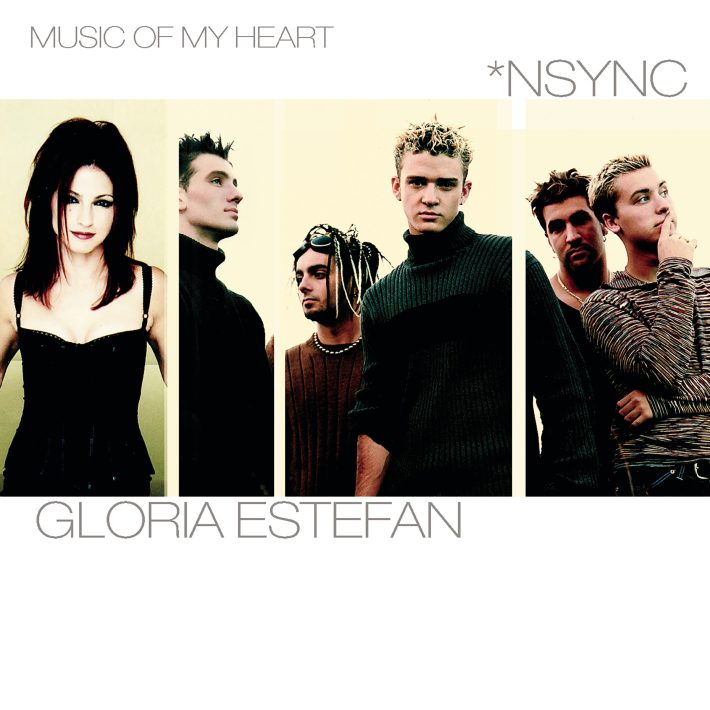
*NSYNC & Gloria Estefan - "Music Of My Heart" (from Music Of The Heart, 1999)
Wes Craven is one of the greatest horror directors in history, but that's not what he always wanted to do. In 1999, he finally broke out of his genre, but only for a moment. In between Scream 2 and Scream 3, Craven made Music Of The Heart, a non-horrific drama about a lady who teaches public school kids in Harlem all about music. Madonna was supposed to play the lady, but she couldn't get along with Craven, so she backed out. Meryl Streep took the role, and she got an Oscar nomination for it. Gloria Estefan made her acting debut, and she also sang this ballad with the on-fire *NSYNC. I tell you what: *NSYNC had a lot of singles that were much, much better than this one. "Music Of My Heart" feels like Diane Warren and David Foster writing specifically for Gloria Estefan, and *NSYNC just happened to be available to turn the song into a blockbuster. (It peaked at #2 on the Hot 100.) The song is definitely boring, but you can hear some of the weird energy that surrounded Justin Timberlake in that moment, especially as he tried to make a case for himself as a serious R&B singer. He does a nice job with the opening verse here. Everything else lulls me into a stupor, but it's still fun to hear 1999 Timberlake doing his best Brian McKnight. 1999 was a stacked year for Best Original Song, at least by the corroded standards of the late-'90s Academy. Phil Collins won the award for the Tarzan theme "You'll Be In My Heart," and it could've also gone to Aimee Mann, Randy Newman, or South Park guy Trey Parker for "Blame Canada." Diane Warren's entry is smack in the middle of the Diane Warren Oscar-songs power ranking, but it's by far the worst of that year's nominees.
Diane Warren respects the formula. She'd already written a massively gloopy hit ballad for a Michael Bay movie, and she'd already written a different movie theme that was a big hit for a country singer despite not being a country song. Why wouldn't she write the big Faith Hill love theme from Bay's notorious bomb Pearl Harbor? It seemed like such a good idea at the time! In retrospect, you've got to love the hubris involved in Pearl Harbor. It was Michael Bay! It was Ben Affleck! It was Titanic-style doomed-love historical fiction, set against dramatic world events! (The love is doomed, right? I've never actually seen it.) But nobody wanted to watch that shit. New wave synth auteur Trevor Horn co-produced Faith Hill's recording of "There You'll Be," and you cannot tell. The song was a decent-sized hit, peaking at #10 on the Hot 100, but it sounds like a dim reflection of the songs that Diane Warren wrote in the years before hand. Other than Faith Hill's voice, nothing even marks it as a country song. Diane Warren wasn't in the automatic-nomination zone yet, and she lost that year's award to Randy Newman's Monsters, Inc. song "If I Didn't Have You." Paul McCartney, Sting, and Enya were also nominated that year. Warren never had a chance.
We're back in fake-movie territory here. Four Good Days is a Sundance addiction drama with Glenn Close and Mila Kunis, and it earned less than a million dollars at the box office. Its existence feels like an easily debunked Hollywood rumor. "Somehow You Do" hits all the stand-up be-strong themes of so many other Diane Warren ballads, and it could easily fade into the memory hole. But delivery matters, and Reba McEntire knows how to deliver a song like this. Reba McEntire probably hasn't gotten her due as a giant of American pop music. She's not a country singer for authenticity fetishists, but she can sell a ballad like this with so much weary authority that you can't help but believe her. The "Somehow You Do" arrangement, with its tender acoustic guitar and its raging-gospel finale, is built to help McEntire's voice, rather than to smother whatever personality she might bring to it. The result is something perfectly pleasant. It lost to another perfectly pleasant song, Billie Eilish's Bond theme "No Time To Die." There's a very good chance that Eilish will again defeat Diane Warren on Sunday. The solution to this stalemate seems obvious: Diane Warren needs to write a movie ballad with Billie Eilish. I wonder how many times Warren has made that pitch.
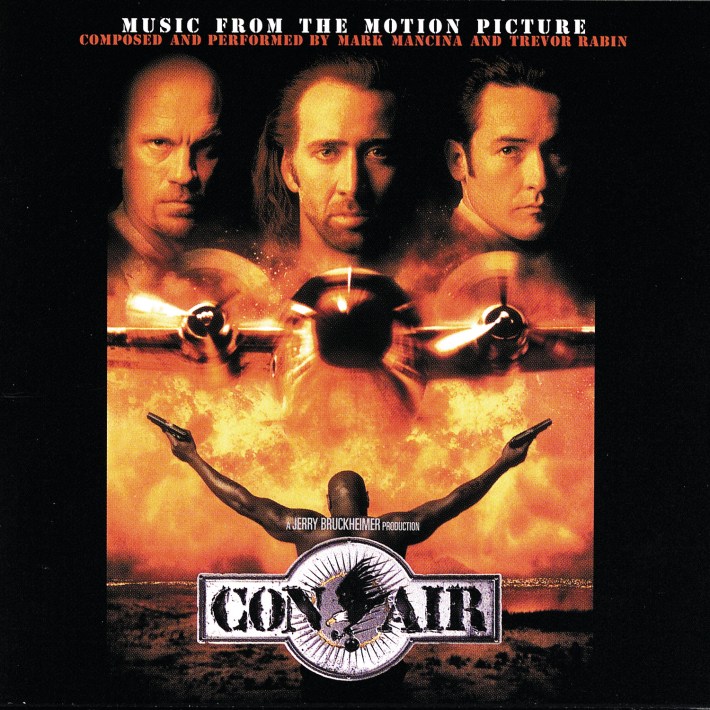
Trisha Yearwood - "How Do I Live" (from Con Air, 1997)
The messiness over the release of "How Do I Live" is way more interesting than the song itself. Diane Warren wrote the song with teenage pop-country phenom LeAnn Rimes in mind, and then she promised Rimes the song when she ran into her at a restaurant one night. Rimes recorded her version the very next day, but Disney didn't think her version was substantial enough for their insane fever-dream action flick Con Air. At Warren's pleading, Rimes still got to release her version of the track, so two competing recordings were on the market at the same time. Rimes' version became a giant pop hit, but Trisha Yearwood got to sing hers at the Oscars. She got to watch the song lose, too. "How Do I Live" is fine. It's gurgly and melodramatic, with a big chorus and an even bigger ridiculous saxophone solo. The song exists to give human weight to a deranged masterpiece of blockbuster violence, and its vulgar sincerity makes me smile. The song got an Oscar nomination the same year that Elliott Smith got nominated for "Miss Misery," from Good Will Hunting, which is fun to think about. But neither of those songs had a hope in hell of defeating Céline Dion's "My Heart Will Go On," a much bigger and more successful work of vulgar sincerity. That bunny would have to stay in the box forever.
We should all be insulted by the existence of the movie Flamin' Hot. It's the inspirational tale of the janitor who invents Flamin' Hot Cheetos? And It's not even true? It's all made up? Just sitting there on Hulu, a piece of corporate messaging disguised as Eva Longoria's directorial debut? Honestly, this cinematic trend of heroic-CEO branding biopics can go jump in a lava flow. It's one of the worst ideas that Hollywood has had in decades, and that's saying something. The song, though? The song is pretty good! Diane Warren wasn't always an autopilot ballad specialist. She used to write bangers sometimes. Laura Branigan's "Solitaire," DeBarge's "Rhythm Of The Night," Cher's "If I Could Turn Back Time" – those are all Diane Warren jams. "A Fire Inside," with its lithe little reggaeton beat, is a welcome reminder of the days when Diane Warren songs sometimes had a pulse. It's no masterpiece, but it's a whole lot more fun than most of the songs on this list. It's more fun than at least one of its fellow nominees, too. "The Fire Inside" won't defeat Billie Eilish's "What Was I Made For?," but it's a significantly livelier song. ("The Fire Inside" is, however, nowhere near as lively as "I'm Just Ken," the song that truly deserves the Oscar this year.)
The '90s were a different time. They really thought it was a good idea to make a big-budget movie about Michelle Pfeiffer and Robert Redford, TV journalists in love. Joan Didion and her husband John Gregory Dunne wrote the Up Close & Personal script. Disney made them send in 27 different drafts, and the studio then made sure to set that story to the love song that Diane Warren wrote for her father. Movie magic, baby! Warren wrote "Because You Loved Me" for Toni Braxton, around the same time that she wrote Braxton's monster ballad "Un-Break My Heart." But Braxton turned down "Because You Loved Me," and the song went to fast-rising French Canadian songbird Céline Dion instead. In the process, it helped set the table for "My Heart Will Go On." Compared to that song, "Because You Loved Me" is positively delicate. It's also a lot more rhythmic, more rooted in gospel and R&B. Still, the melodrama translates. There's some real comfort in that smooth-R&B languor. "Because You Loved Me" went to #1, but it lost the Oscar to "You Must Love Me," the song that Andrew Lloyd Wright and Tim Rice wrote for Madonna to sing in Evita. It should've lost to "That Thing You Do!," the song that the late Adam Schlesinger wrote for the film of the same title, but I guess that one just wasn't bombastic enough for the '90s Academy.
Diane Warren really thought she was going to win with this one. Here's how she describes the feeling in her 2021 Stereogum interview: "'Til It Happens To You' really hurt, because everybody was saying that was gonna win... People in the audience were sobbing, and then it went to commercial, and it came back and they were like, 'The winner is…' And we were all like, 'It's gonna be this song.' And it wasn't. That hurt, I remember that. And this year, I lost again. [Laughs] But It's all good." it must suck to think that your big moment is finally going to happen, and then it doesn't. Things really seemed to line up for "'Til It Happens To You," which Warren co-wrote with Lady Gaga. Part of it is the subject matter. The Hunting Ground is a documentary about campus rape, and it's got a heaviness that matches the grandeur of the arrangement. Lady Gaga, who won the Oscar three years later, knows how to meet the pitch of a song like this, grounding it in personal experience while also pushing it over the top. It's got an urgency that other Diane Warren Oscar songs simply don't have. If this one had finally won Diane Warren her Oscar, it would've made sense. Unfortunately, the song ran up against the Academy's recent habit of giving the trophy to any Bond theme, so Sam Smith's "Writing's On The Wall" took it.
Mannequin is a tender, antic romantic comedy about a department-store window dresser who falls in love with a mannequin, who then magically comes to life. Even in the late '80s, when every movie was based on cocaine-fueled logic, this was beyond the pale. Almost instantly, Mannequin became the kind of motion picture that appears on snarky lists of the worst movies ever made. The Academy hates showing any kind of love to a film like that, so a song would have to have some serious power to break through that stigma. "Nothing's Gonna Stop Us Now" has some serious power. Starship, the band that sprang from the dying embers of the Jefferson Airplane, were on a big hit streak when they recorded "Nothing's Gonna Stop Us Now," and the song has all the cheesily cheery anthemic synth-rock boom of their previous hits while also being a pretty good song. Diane Warren wrote it with her old collaborator Albert Hammond, the father of a Stroke, and it's the kind of bright-plastic big-pulse pop music that nobody makes anymore. "Nothing's Gonna Stop Us Now" won Warren her first #1 hit and her first Oscar nomination, but it lost the award to Bill Medley and Jennifer Warnes' iconic Dirty Dancing theme "(I've Had) The Time Of My Life." What can you do? Nothing was gonna stop that song that year. There's no defeating destiny.
We rely on reader subscriptions to deliver articles like the one you're reading. Become a member and help support independent media!
